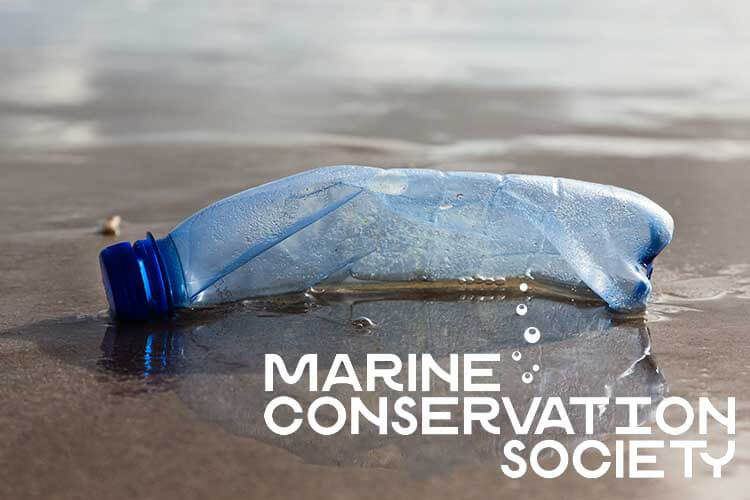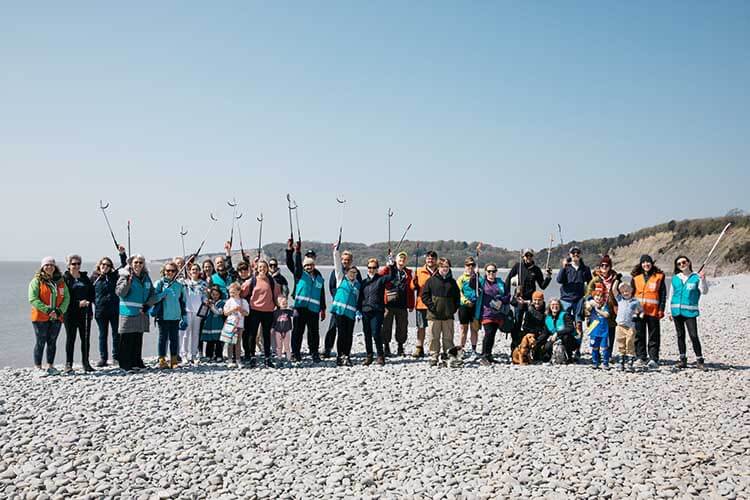
The results for the Marine Conservation Society’s (MCS) 2022 Great British Beach Clean have been published, with the charity saying they demonstrate the need for deposit return schemes to stop litter reaching British beaches.
During this year’s cleanup, which took place between 16-25 September, 50km of beach were cleared and surveyed by over 5,261 volunteers, who filled over 1,228 bags of litter, weighing in at 3,908kg.
An average of 103 pieces of plastic or polystyrene were found for every 100m of UK beach, with drinks-related litter being found on 93 per cent of the beaches surveyed. Deposit return schemes, where customers would earn a small fee for placing used plastic bottles into collection machines, would help to reduce the amount of drinks-related litter finding its way into the waterways and, eventually, the sea.
Adding a small, positive note, the data collected shows a 4 per cent decrease in the overall litter levels of the UK’s beaches from the 2021 beach clean.
By taking part in the Great British Beach Clean, volunteers not only clear beaches of litter, but also help tackle ocean pollution by gathering vital data used by the charity to lobby governments and create change for cleaner seas and a healthier planet.

Top ten most common litter items on UK beaches (average per 100m)
- Plastic and polystyrene pieces – 103.1
- Crisp and sweet packets, lollipop sticks etc. – 27.2
- Wet wipes – 22.7
- Cigarette stubs – 20.5
- Other glass – 19.2
- Plastic lids and caps – 16.4
- Plastic cord or string – 8.9
- Cotton bud sticks – 7.4
- Paper or cardboard – 6.0
- Fishing line (recreational angling) – 6.2
Dr Laura Foster, Head of Clean Seas at the Marine Conservation Society said, ‘It’s good news that litter levels are dropping, albeit slowly, and we know that governments’ actions have been shown to be highly effective, from introducing carrier bag charges to the banning of certain single-use plastic items.

‘These small changes have resulted in notable differences in the amount of these types of litter found on our beaches,’ Dr Foster continued. ‘However, there is a worrying increase in the amount of glass pieces being found, suggesting that glass is now frequently being littered.’
The charity says its data highlights not only the need for deposit return schemes to be implemented throughough the UK, but – with glass-bottle related litter one of the top five most commonly encountered items – for glass bottles to be included in the schemes along with their plastic counterparts.
Deposit return schemes will be implented across Scotland in August 2023, however, although the consultation for England, Wales and Northern Ireland has been completed, there is, as yet, no date for commencement of the scheme in those parts of the UK.
A YouGov survey commissioned by MCS in Feburary 2022 found that 76 per cent of respondents support a deposit return scheme, with 81 per cent of the survey’s respondents saying that supermarkets should actively support them.
For more information on the Marine Conservation Society’s work, please visit the charity’s website: www.mcsuk.org.


